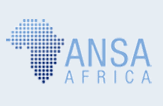Nigerian Procurement Observatory launches
4 June 2010
Public Private Development Centre
Lagos: The Nigerian Procurement Observatory is now live, online real time. The Observatory is a procurement monitoring web portal, developed in consultation with many NGO's and development agencies in Nigeria. It provides free online procurement monitoring training, free legal advice for registered journalists and procurement monitors and a mechanism for online collation and analysis of reports of procurement monitoring based on a standard checklist.
The portal, an information sharing platform also has capabilities for mass mailing and hosting sub-sites for stakeholders. Visit the site now at www.procurementmonitor.org and register for any of these features. The First 50 Journalists, the First 50 NGO and the First 50 Professional body representatives to register on the portal will enjoy free legal advice from a Top Notch Nigerian Procurement law firm on all their procurement related activities via the blog.
For further information or enquiries concerning this program, please contact Seember () or Bimpe (). For issues regarding how to use the portal please contact Davies on.
Background:
PPDC provided the strongest CSO voice in support of procurement reforms, and secured the inclusion of a mandatory clause for NGO and professional bodies to monitor every public procurement activity carried out at the Federal level of government in Nigeria into the Public Procurement Act 2007.
Following the passage of that law with this sunshine provision, PPDC designed and launched its Procurement Watch (Monitoring) Program, which later gained the support of PACT Nigeria. This program has achieved some milestones, which includes the formation of the National Procurement Watch Platform along with many other CSO actors, the publication of the first guide for to activate and sustain the emergence of empowered citizenship participation, through which good governance, sustainable development and a life of dignity can be attained by all.
The program further trained the first set of citizens procurement monitors under the Public Procurement Act 2007 and through the platform, produced a Code of Conduct for civil society procurement observers, which has been approved and published by the Bureau for Public Procurement the federal procurement regulatory body in Nigeria. The program has also designed and produced a standard checklist for procurement observation reports.
With support from UNDEF, PPDC has deployed this independent national monitoring mechanism to collate, analyze and disseminate procurement monitoring reports. This ICT based PROCUREMENT OBSERVATORY is being deployed to provide virtual access for submission of monitoring reports by professional body and CSO representatives based on simplified standard checklists, support automated analysis and dissemination of such reports, provide daily legal advice for investigative journalists and monitors/observers through blogs and deploy a self tutoring mechanism for improving capacity of stakeholders. It also has a virtual library on Nigerian procurement issues. www.procurementmonitor.org.
Another aspect of this program is targeted at CSOs, professional bodies, trade associations and relevant committees of the National Assembly. It is deploying TOT and direct procurement monitoring trainings which seek to improve skills for procurement monitoring, oversight and introduce stakeholders to use of ICT and other tools, and creates opportunity and capacity for stakeholders to replicate trainings and increase the number of trained procurement monitors.
The Nigerian Procurement Monitoring Project is building relevant partnerships with international development partners, media outlets, and the legislature and government institutions to cooperate in the implementation of the Public Procurement Act, it is intended to improve citizens monitoring, support improved executive and legislative oversight and evolve effective, transparent and accountable procurement process. In particular, this will improve collaboration within CSOs and with legislative committees. The project carries out annual assessment of levels of implementation of the Public Procurement Act 2007, publishes reports identifying challenges and providing recommendations for improvements.
|

